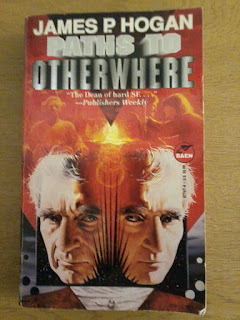As the winter has finally arrived, I'm belatedly posting my first ever attempt at spoken word. It was written for
Adam Ings' annual
Bibby Factors Christmas compilation and recorded by
Jim Kennedy. Big thanks to both for helping me make this happen!
True to form, it's a gothic horror story about the dangers of leaving artificial intelligences in charge of Christmas.
The
recording on the compilation, recorded outside in the rain for additional lo-fi effect, can be found here, while the text is below.
The rest of the compilation is probably awesome, but as the speakers have blown on my laptop, I'm taking this on faith at time of going to press.
All feedback welcome, but be gentle. I may even write more. :-)
Sing-yule-arityI'm the last man alive
Within 25 miles
And I'm not feeling the Christmas spirit
Though the snow is falling and the songs are calling
From every little high-tech-old-world booth
In this android market
So come ye, so faithful to your programming
And tell this last lookout, this not so merry gentleman
What kind of Beast
Has sledged its way to Bethlehem to be born?
Cause it's the middle of July,
And I don't know why,
These Yuletide Brynners got things going outta season,
But there's a star overhead and it shines a deep red,
On this Fimbulwinter, cyber-Santa, pine-clone, smart-snow, angel-glow,
Mask scene playing out below.
And hark, herald!
So joyless in your triumph,
And tell this last look-out, this bleak midwinterer,
What digital beast,
Has sledged its way to Bethlehem to be born.
Down we go, gently go,
Into the LED-lit, terabit grotto,
Where Lady Gray Goo and her recondite, Stakhanovite nanites,
Will reshape you in a form better suited,
To the most terrifying time of the year.
Now I have seen,
I have seen,
And this last lookout, this vain-taking cavalry caller,
Knows what singular beast,
Has sledged its way to Bethlehem to be born.
(with some apologies to W B Yeats for the steal)








